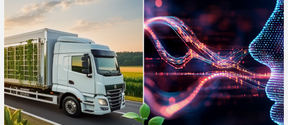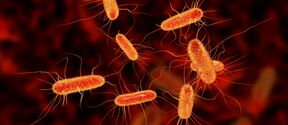Tiina Tuurnala named as Aalto University School of Engineering Alumna of the Year 2019

Chief Executive Officer Tiina Tuurnala of the Finnish Shipowners' Association has been named as Alumna of the Year 2019 by the Aalto University School of Engineering. Tuurnala is the fourth person to be awarded the title.
'Tiina Tuurnala has built an outstanding career in the maritime sector. She is an excellent example of how the combination of technology studies, multidisciplinary expertise and passion for one's field can result in success. I hope that her career path can serve as an inspiration for young people to take an interest in the field of technology', says Dean Gary Marquis of the School of Engineering.
Tuurnala studied geographic information systems and cartography at Helsinki University of Technology, graduating in 1998 as a Master of Science in Technology. Her interest in seafaring turned into a job as a developer of navigational charts at the Finnish Maritime Administration, where she was later appointed to the management team as the head of the hydrographic department in 2003.
In 2010 she joined the Finnish Transport Agency as development director, and in 2011 she was appointed the agency's director for road, rail and sea traffic. In 2013, she joined the agency's management team as the deputy director-general for traffic and information, which included development projects related to digitalisation, automation and smart traffic in various forms of transportation; winter navigation; and mass transit. Tiina Tuurnala became the chief executive officer of the Finnish Shipowners' Association in 2017.
Tuurnala has a wealth of experience in national and international positions of trust. She has served as a member of the Forestry Development Centre Tapio board from 2006–2011 and the Finnish Meteorological Institute Advisory Board from 2012 to 2017, as chair of the national INSPIRE spatial data network from 2009 to 2019 and as a member of the International Association of Marine Aids to Navigation and Lighthouse Authorities Council from 2013 to 2017. She is currently the chair of the National Emergency Supply Agency's Water Transport Pool and a board member of the Finnish Lifeboat Institution and the Shipowners' Foundation in Finland.
Could you tell us about yourself and your career?
I began my studies at Helsinki University of Technology in Otaniemi at the beginning of the 1990s. The first couple of years were dedicated to studies and student life, but after my second year I was already being pulled into working life. I started out as a summer intern working on navigational charts at the Finnish Maritime Administration and I am still on that path.
At 30 years old I was appointed the head of the national hydrography department, which included – among other things – Finland's surveying ships. Already in that position I got to see the world through a shipowner's perspective. During my seven years at the Finnish Transport Agency I became familiar with many forms of transportation, and we acquired the Polaris, the first LNG-powered icebreaker in the world.
In my current position as the chief executive officer of the Finnish Shipowners' Association, I have an excellent view of the world of seafaring and the chance to create its future as digitalisation and automation break through to help us reach zero emissions in seafaring.
International co-operation has been a part of my work throughout my career. At the moment, a large part of my time is spent collaborating with shipowners' representatives from other countries through umbrella organisations – the ECSA in Europe and the global organisation ICS. Finland is leading the way in environmental innovation and digitalisation within seafaring. Our co-operation inside the Finnish Maritime Cluster is also a model for others around the world.
How did you end up studying your chosen field?
Technology was a natural choice, since mathematics-adjacent subjects have always been a strong suit for me. I may have also been inspired by my older brother, who began studying at HUT a couple of years before I did. I was drawn into surveying because of its down-to-earth nature, but it wasn't until my studies were underway that I got to know cartography and geographic information technology, which fascinated me. It was still a young field and one in which Finland boasted substantial expertise. I also owe a large debt of gratitude to the inspiring and high-quality teaching – Professor Kirsi Virrantaus played a significant part in my choice of field.
What is your favourite memory of student life?
My first years as a student have stayed with me. I was an active participant in student life and a member of our guild's board. We worked to collect funds for "a long domestic excursion", which ended up being in Tunisia. I have many fond memories of that trip. I also made lifelong friends during my time as a student.
What was the best thing you learned that helped you in working life?
The power of co-operation. Students of surveying always pulled together and helped each other with studies and practice assignments. Everyone benefits from co-operation, and by working together we can change the world.
Could you share a surprising fact about yourself?
I have been granted the military merit medal and the Border Guard's cross of merit. I have worked with the Finnish Defence Forces and the Finnish Border Guard for years and participated in, for example, the marine authorities' METO initiative, which is a great and internationally unique example of co-operation that crosses sectoral boundaries between different agencies.
What do you consider the best climate action?
In my work I have delved deep into climate change and emissions reduction. The global emissions targets for seafaring are ambitious and the maritime industry is putting a heavy emphasis on responsibility.
I consider the role of food waste to be the most surprising in global emissions. Studies have attributed roughly 10% of emissions to food waste. That is much more than air traffic or seafaring. So there is still much to do in reducing food waste.
Read more news

Two Unite! Seed Fund projects involving Aalto secure top EU funding
Two prestigious EU grants have been awarded to projects that were initially supported with Unite! Seed Funding. Both projects involve Aalto.
Chem Awards 2025 recipients announced
The School of Chemical Engineering recognises outstanding individuals and teams for their exceptional contributions over the year
Deepika Yadav leverages technology to improve women's health
Deepika Yadav recently began as an assistant professor at the Department of Computer Science in the field of human-computer interaction (HCI) and interaction design for health and wellbeing.






